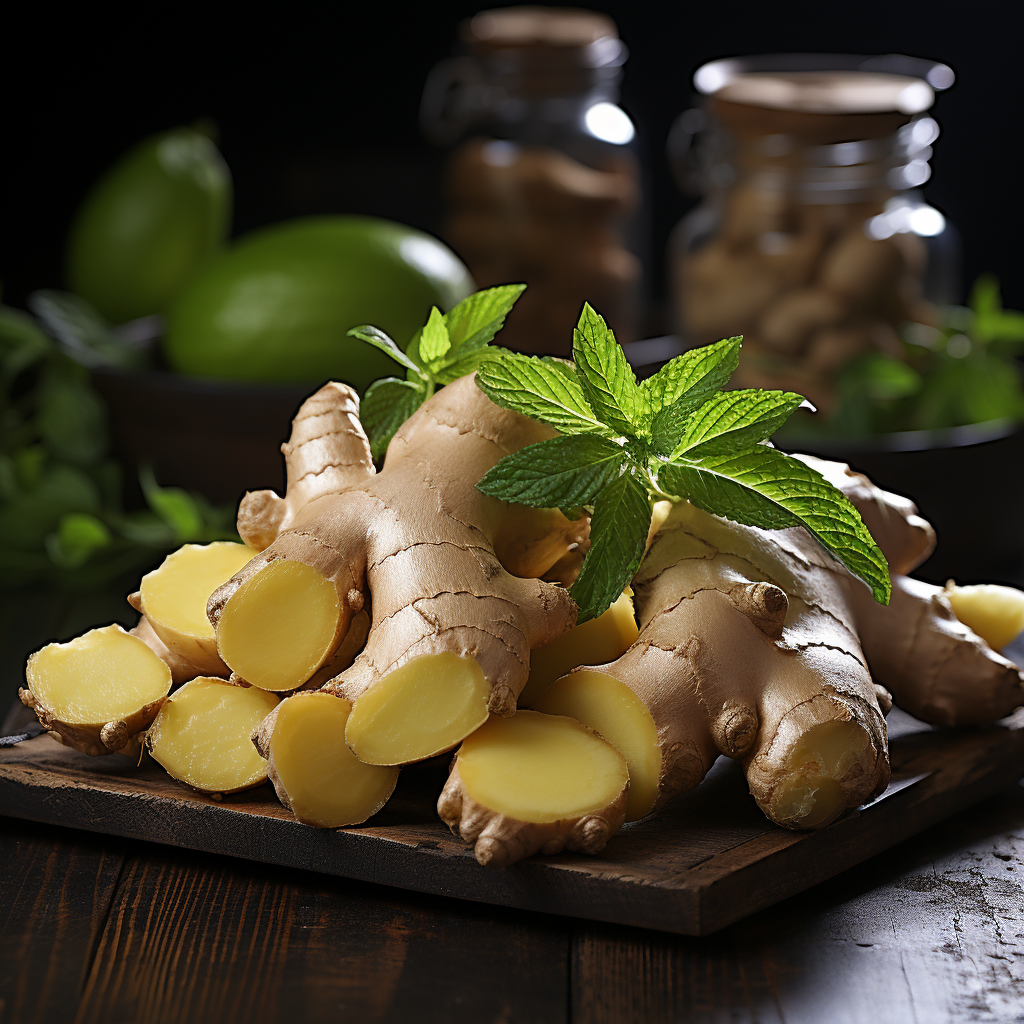Ginger is not just a popular spice used in various cuisines around the world; it’s also celebrated for its remarkable health benefits. From soothing digestive issues to reducing inflammation, ginger has been used for centuries as a natural remedy for a wide range of ailments.
Introduction to Ginger
Ginger, scientifically known as Zingiber officinale, is a flowering plant native to Southeast Asia. It belongs to the Zingiberaceae family, which also includes turmeric and cardamom. The rhizome, or underground stem, of the ginger plant, is commonly used in cooking and traditional medicine.
Nutritional Composition of Ginger
Ginger is packed with essential nutrients and bioactive compounds that contribute to its therapeutic properties. It contains gingerol, the main bioactive compound responsible for its characteristic flavor and many of its health benefits. Additionally, ginger is rich in vitamins, minerals, and antioxidants, including vitamin C, magnesium, and zinc.
Anti-inflammatory Properties
One of the most well-known benefits of ginger is its powerful anti-inflammatory properties. Gingerol, the bioactive compound found in ginger, has been shown to inhibit the production of pro-inflammatory cytokines and enzymes, thereby reducing inflammation in the body. This makes ginger a valuable ally in the fight against chronic inflammatory diseases like arthritis and osteoarthritis.
Digestive Health Benefits
Ginger has long been used to aid digestion and relieve gastrointestinal discomfort. It stimulates the production of digestive enzymes, which help break down food and promote efficient digestion. Ginger also has carminative properties, meaning it can alleviate bloating, gas, and indigestion.
Immune-Boosting Effects
Regular consumption of ginger may help strengthen the immune system and reduce the risk of infections. Its antioxidant properties help combat oxidative stress and free radical damage, while its antimicrobial properties help fight off harmful pathogens. Adding ginger to your diet during cold and flu season could help support your body’s natural defenses.
Nausea Relief
Ginger is a well-known remedy for nausea and motion sickness. Studies have shown that ginger can effectively reduce nausea and vomiting associated with pregnancy, chemotherapy, and surgery. Its anti-nausea effects are thought to be due to its ability to soothe the stomach and regulate gastric motility.
Pain Management
For centuries, ginger has been used as a natural pain reliever. Its anti-inflammatory properties make it effective for alleviating pain and stiffness associated with conditions like arthritis, muscle soreness, and menstrual cramps. Some studies even suggest that ginger may be as effective as conventional pain medications but with fewer side effects.
Cardiovascular Health
Emerging research suggests that ginger may have beneficial effects on heart health. It can help lower blood pressure, reduce cholesterol levels, and prevent blood clot formation, which are all important factors in reducing the risk of heart disease and stroke. Incorporating ginger into a heart-healthy diet may offer additional protection against cardiovascular problems.
Weight Management
Ginger may also support weight loss and weight management efforts. It can increase thermogenesis, or the body’s ability to burn calories, and suppress appetite, leading to greater calorie expenditure and reduced food intake. Additionally, ginger can help regulate blood sugar levels, which is important for preventing weight gain and obesity.
Skin and Hair Benefits
The antioxidant properties of ginger make it beneficial for skin and hair health. It can help fight signs of aging, such as wrinkles and age spots, by neutralizing free radicals and promoting collagen production. Ginger also has antimicrobial properties that can help prevent acne and dandruff when applied topically.
Brain Health
Recent studies have suggested that ginger may have neuroprotective effects and could help improve cognitive function. Its antioxidant and anti-inflammatory properties may help protect against age-related cognitive decline and neurodegenerative diseases like Alzheimer’s and Parkinson’s. Including ginger in your diet may help support brain health and preserve cognitive function as you age.

How to Incorporate Ginger into Your Diet
There are many easy ways to add ginger to your diet and reap its health benefits. You can grate fresh ginger and add it to stir-fries, soups, smoothies, and salad dressings for a flavorful kick. You can also brew ginger tea by steeping fresh ginger slices in hot water or incorporating ginger powder into your favorite recipes.
Precautions and Potential Side Effects
While ginger is generally safe for most people when consumed in moderate amounts, it may cause side effects in some individuals. These can include digestive issues like heartburn and diarrhea, as well as allergic reactions in sensitive individuals. Pregnant women should consult their healthcare provider before using ginger as a remedy for nausea, as high doses may pose a risk to the fetus.
Conclusion
In conclusion, ginger is a versatile spice with a wide range of health benefits. From reducing inflammation and soothing digestive issues to boosting immunity and supporting cardiovascular health, ginger has been valued for its medicinal properties for centuries. By incorporating ginger into your diet regularly, you can harness its powerful therapeutic effects and improve your overall health and well-being.
FAQs
Is ginger safe for everyone to consume?
While ginger is generally safe for most people, individuals with certain medical conditions or those taking medications should consult their healthcare provider before consuming ginger supplements.
Can ginger help with weight loss?
Some studies suggest that ginger may aid in weight loss by increasing calorie expenditure and reducing appetite, but more research is needed to confirm its effectiveness.
How much ginger should I consume daily to experience its health benefits?
There is no specific recommended dosage for ginger, but incorporating 1-2 grams of fresh ginger or 150-300 milligrams of ginger extract into your daily diet is considered safe and effective for most people.
Can ginger help with menstrual cramps?
Yes, ginger has been traditionally used to alleviate menstrual cramps due to its anti-inflammatory and pain-relieving properties. Drinking ginger tea or taking ginger supplements may help reduce the severity of menstrual cramps.
Are there any interactions between ginger and medications?
Ginger may interact with certain medications, including blood thinners, antidiabetic drugs, and blood pressure medications. It’s important to talk to your doctor before using ginger supplements, especially if you’re taking prescription medications.



